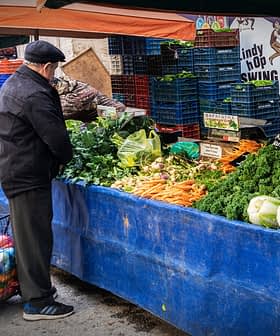Greek Trade Group Proposes National Strategy for Olive Oil
The National Interbranch Olive Oil Association unveiled a strategy to create a stable environment and boost exports.
The major organizations of producers, exporters, and other olive oil professionals in Greece, united under the common roof of the National Interbranch Olive Oil Association, have devised a national strategy to create a stable environment for the olive oil industry and, in the long term, increase the annual exports of Greek standardized olive oil to 100,000 tons from about 40,000 tons currently shipped abroad.
There is a complete lack of data in Greece on olive oil production, sales, exports, reserves, and many more.
Olive oil is an extremely important product of the Greek agricultural sector, being the main source of income for more than 500,000 families in the country and adding more than 1 billion euros to the annual GDP.
The strategy includes certain measures and provisions targeting the production chain.
An essential step, according to the group, is to apply economies of scale to reduce costs at harvest time, which are relatively high in Greece compared to other countries due to the fragmentation of the olive groves and of the production process. This can be achieved by using financial incentives like tax reductions for producers to form associations, or by using the EU’s National Strategic Reference Framework (NSRF) to fund mergers and create clusters of producers and exporters.
Cost is also amplified at the mills, where producers commonly ask for their crops to be separately processed. This means that more time and energy are required to process the olives and a change in the mindset of producers is needed to accelerate the procedure.
It is further proposed that, by working together with the state, a simplified and modernized legislative framework for building and operating olive oil mills, bottling facilities, and refinery plants should be created. Moreover, an effective way to manage the waste produced at the mills is crucial, along with provisions for successfully utilizing water resources by building dams and irrigation systems where needed.
In terms of promoting and selling olive oil, a re-evaluation of all the Protected Destination of Origin (PDO) labels is proposed to identify possible weaknesses and further strengthen the product. The strategy also finds that the internal olive oil market is well-organized, and new markets abroad must be developed aggressively.
It is remarkable though that during the eight years of recession, the sector managed to increase the exports of bottled olive oil to reach 40,000 tons per year from 15,000 tons before the financial crisis emerged.
An important point of the strategy is a parafiscal tax, suggested to be imposed on all professionals in the olive oil sector to ensure that adequate funding is available to support the sector and promote the Greek olive oil.
This scheme has already been applied in Spain and lately in Tunisia, wherein the case of Spain it amounts to €6 per ton of olive oil, returning a total of more than €6 million a year to the organizations and unions of olive oil to fund their actions.
According to experts of the sector, the tax could be up to €1 or €2 per ton for everybody involved in the olive oil cycle like growers, producers, mill owners, merchants, and exporters. This would mean that a total between €200,000 to €400,000 would be returning to the Interbranch Association every year as a financial resource.
Apart from the proposed national strategy, the Association wants to virtually reboot the olive oil sector as its head, Manolis Giannoulis told the press. He determined that their first priority is to monitor and record the size and relevant quantities of all the branches of the olive oil sector.
“There is a complete lack of data in Greece on olive oil production, sales, exports, reserves, and many more,” he said in his interview. “The Spaniards have data available and they update them every month. By knowing their next crop size, they have been able to establish a stock market for olive oil and to sign contracts. We can do it here as well.”
Olive oil sold in bulk in the country, usually in 17-liter tins (called tenekes in Greece), is another big issue according to Giannoulis.
“Everyone is talking about the olive oil sent to Italy in bulk, but nobody says anything about the bulk oil in tins sold inside of the country,” he said.
“There is also the new mandate requiring that only bottled olive oil is served in restaurants which is not adequately applied. Five years ago a research showed that 40 percent of the oil sold in tins was adulterated and 30 percent of it was not extra virgin even if it was sold as extra virgin.”
Estimates from most regions show that next season’s harvest will be strong in Greece and, despite the inherent weaknesses and imperfections of the sector, the cooperation of all stakeholders can significantly improve the status of Greek olive oil.








